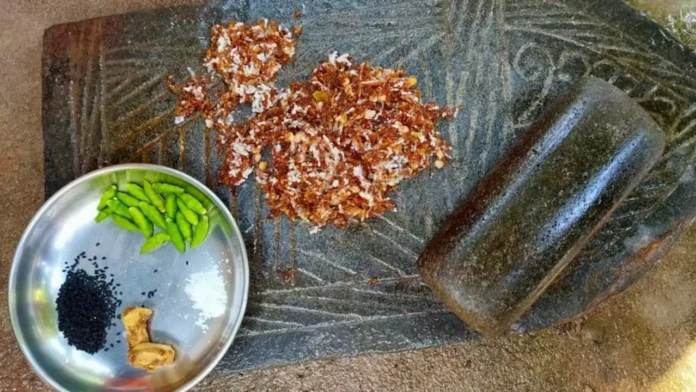In recent years, the culinary landscape has been shaped by a desire to rediscover our culinary heritage, emphasizing sustainability and the use of hyperlocal ingredients. Over the past few months, several of India’s indigenous culinary delights have been granted Geographical Indication (GI) tags. The latest addition to this list is the red ant chutney, a zesty delicacy from Odisha.
As reported, the chutney, also known as Similipal Kai Chutney, is skillfully crafted by the tribal people of Odisha’s Mayurbhanj district using red weaver ants. On January 2, 2024, it was granted the geographical identity tag, reflecting its deep-rooted connection to the region’s flavors and traditions. Notably, in 2018, renowned British chef Gordon Ramsay acknowledged its delectable taste, adding it to his menu.
Across different global communities, insects have been a traditional and nutritious food source, a practice referred to as entomophagy. From ants and crickets to silkworm larvae, these small creatures have become part of diverse diets. In India, the enjoyment of red ant chutney extends beyond Odisha; Chhattisgarh and Jharkhand also relish this delicacy, believed to be nutritious. During the pandemic, it was even considered a remedy for Covid.
Continue Exploring: Goa advances with GI tags for fish curry rice and traditional bread varieties
Crafted by indigenous tribes in Mayurbhanj, the chutney involves gathering red weaver ants, also known as kai pimpudi, from the sal trees in the nearby Similipal biosphere reserve. The task is no simple feat; the male ants are notably fierce, and their bites can be painful. Hence, the majority of individuals prefer to hunt these ants at dawn when they are less active.
Nutritional Benefits of Red Ant Chutney:
Once captured, the ants undergo a process involving crushing, bag collection, washing, and drying before being cooked. This chutney is renowned as a potent source of protein, fiber, and minerals, with reputed abilities to alleviate coughs, body aches, and fever. Additionally, the tribal communities utilize these ants in the preparation of soups and medicinal ointments by incorporating them into oils.
Red Ant Chutney has garnered attention over the past few years. In India, certain restaurants have incorporated this tribal delicacy into their menus. The GI tag not only enhances its recognition but also safeguards its distinctive identity, preventing imitations from diluting its unique flavor profile.



